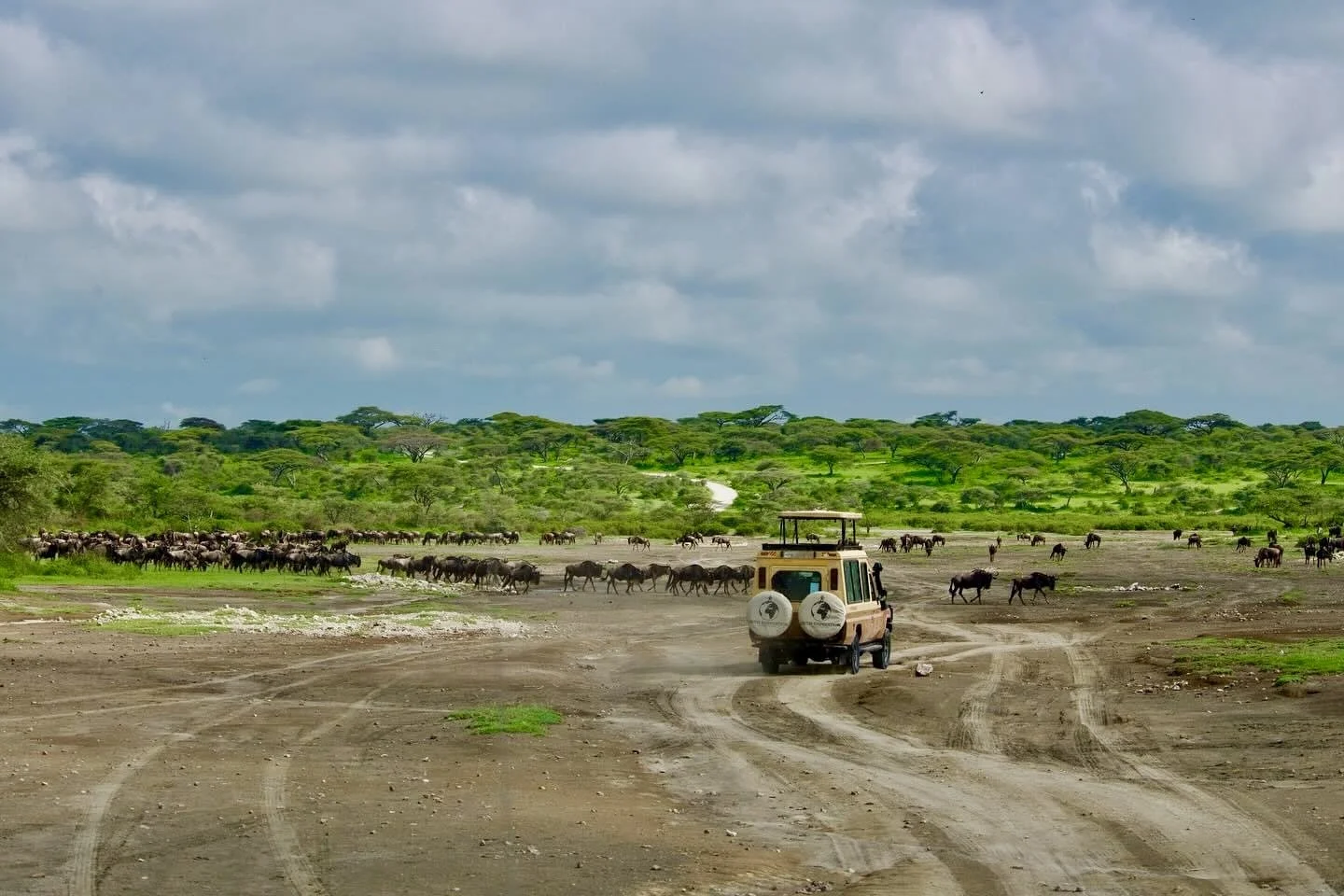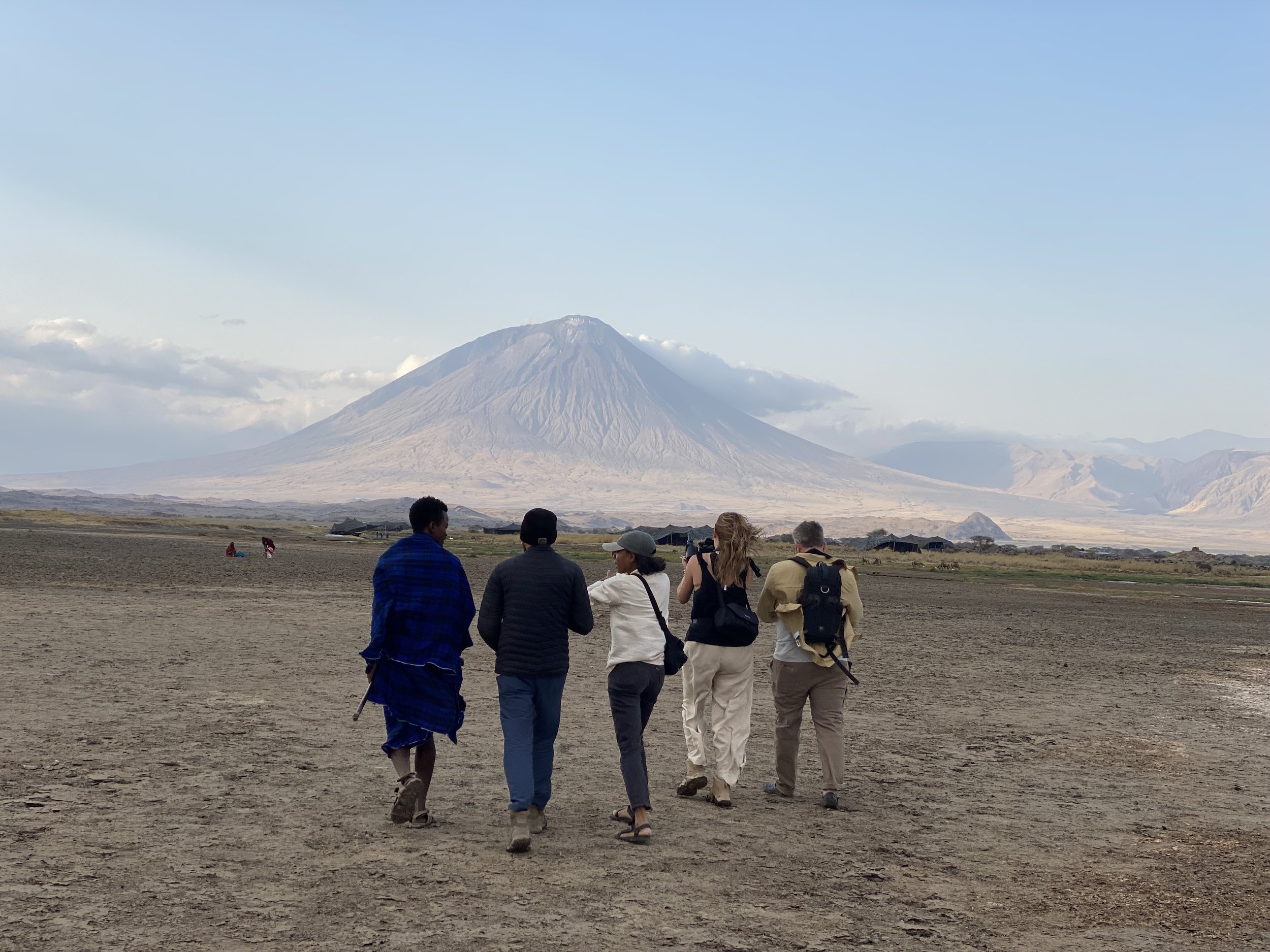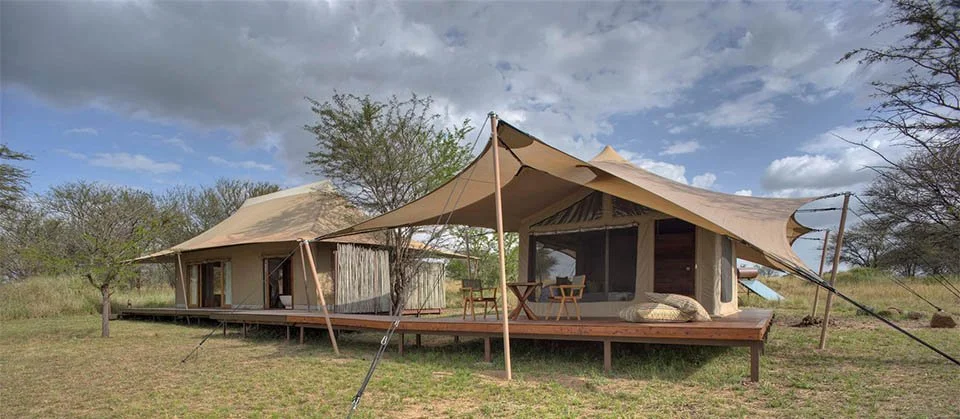OVER TOURISM
The Elephant in the room….Tourism is a two-edged sword. The income and jobs it brings can help protect the ecosystem. However, increasing tourism brings impacts that threaten habitat and wildlife, even the future of tourism itself.
It’s fair to say that without tourism, most of the protected wildlife areas in East Africa would not exist. The big question is, however, whether these protected natural areas will collapse under the weight of their own success. How many tourists are too many? And can the numbers even be controlled?
Overtourism is becoming increasingly used, and for good reason. Wikipedia defines it as “the perceived congestion or overcrowding from an excess of tourists, resulting in conflicts with locals.” But this definition is too narrow. It may fit destinations like Barcelona or Venice but does not cover impacts on natural areas like the Serengeti.
Overcrowding has become a problem on many African safaris." In smaller ecosystems like the Masai Mara and Ngorongoro Crater in Tanzania, there are often more than 200 vehicles in a small area, with every vehicle competing for a better view. "This is not good for the wildlife or the safety of guests, as they are racing for the best spot.
I invite you to watch the documentary” The Last Tourist.”
Travel, a dream for many, often becomes a mere check on the bucket list or a photo on Instagram. But it holds the power to be so much more. It can be a journey of understanding, a catalyst for cultural exchange, a means to uplift the less fortunate, and a tool to protect our planet. It's an experience that can change lives, including yours!
Whether you call it conscious travel, sustainable tourism, or any other name, this evolved form of tourism is not just a green movement. It's a people-centric approach with a strong focus on empowering communities in Africa. In these regions, tourism can be the difference between sustenance and hunger. By benefiting people, we are not just adding value to wilderness areas but also safeguarding the iconic wildlife that calls them home.
After all, it's people in whose hands the future of this planet rests.
Africa is blessed with some incredible eco‐friendly, community-orientated destinations to choose from, with lodges and camps specifically designed to cause the least amount of damage to the environment and where the income generated by tourism flows back into local communities, stimulating economies, improving conditions for often critically impoverished people and giving them skills for life.
There are ways to travel sustainably.
CONSIDER CARBON OFFSETS
There's no silver bullet for undoing carbon emissions, but do research, and you will find many carbon-offsetting projects do meaningful good. Support projects with tangible local impacts, such as planting a tree in the Volcanoes National Park in Rwanda.
PROTECT WILDLIFE
Researching any experience with wildlife is really important. Avoid wildlife sanctuaries that offer encounters with enclosed wild animals, such as touching or riding the animals. Urth Expedition only supports ethical animal interactions such as photographic safaris or rhino notching or darting conservation experiences.
KEEP YOUR MONEY LOCAL
Spend locally by buying souvenirs from local artisans. Look for hotels that have a strong sense of place and pay homage to the host culture; for instance, does it feature artworks from local artists?
CELEBRATE CULTURE
Support cultural heritage by visiting farms employing traditional techniques, touring artist workshops, attending a cooking class, or even booking a spa experience rooted in local practices. Africa is a leader in celebrating local culture, from Masaai and Samburu to Cape Malay and Xhosa, through authentic cultural experiences.
SKIP SINGLE-USE PLASTICS
Forward-thinking destinations such as Rwanda, Kenya, and Tanzania have banned plastics. A growing list of hotels and lodges –are eliminating all single-use plastics from their properties, swapping items such as plastic water bottles for long-lasting and natural ones. You can help lead the way by encouraging properties to make the transition by sharing feedback whenever you can.
ESCAPE THE CROWDS
Over-tourism can strain the local culture, delicate ecosystems, and scarce resources. In addition, masses of tourists are sure to ruin even the most picturesque trip. If you plan to visit popular destinations (for instance, the Serengeti or Masaai Mara), consider traveling during the low season to avoid crowds and, in doing so, contribute less to this issue.
FARM-TO-TABLE DINING
One of the most enjoyable aspects of traveling is mealtimes that reflect the local cuisine. Not only is it a delightful and enriching experience, but it also promotes sustainability, whether dining at a city eatery or staying at a safari lodge that uses locally sourced ingredients. To ensure the ingredients' origins, check the menu for information or ask your hosts. To maximize your positive impact, inquire about dishes that are in season, and you'll be able to relish fresh, even more eco-friendly food.
LINGER LONGER
Extending your stay in one location lets you fully immerse yourself in a single destination. This additional time will result in more fulfilling experiences, less time spent traveling, and the opportunity for the kind of rejuvenation that many of us seek during our getaways. Not only will you save money by taking fewer internal flights in Africa, but you will also help reduce the carbon emissions produced by your trip. Choosing just one safari park or game reserve to spend your entire vacation is a great way to travel more sustainably – and enjoy an affordable African safari!
Step Off The Safari Vehicle
Africa takes on a new perspective when you experience it on foot, as the first explorers did. A walking safari is a unique physical, mental, and spiritual adventure through nature, fully experiencing the sights, smells, and sounds of the bush. Walking safaris can vary from a gentle morning stroll to a multi-day journey from camp to camp.
A walking safari through one of Africa's many extraordinary destinations offers travelers the opportunity to experience this continent's incredible wildlife, as well as treading lightly on the environment.
THE GREAT RIFT VALLEY TREK & WALKING IN THE FOOTSTEPS OF MAN COMBINED TREK
Use Efficient Means Of Transportation
In addition to taking fewer flights in Africa, there are other ways to reduce your trip's carbon emissions. Although all modes of transportation require energy, some are more efficient and cleaner than others – like going on an incredible train safari through Africa.
Luxury train travel is more than just moving from A to B; it's a journey through Africa while experiencing absolute comfort and style. With the emphasis on gracious travel reminiscent of a bygone era, a train safari allows you to absorb Africa's most magnificent landscapes and stop for a couple of game drives in search of the legendary Big 5. From short journeys throughout Southern Africa to epic odysseys from Cape Town to Dar es Salaam, this is a beautiful, environmentally friendly way to travel.
Gliding across the many waterways of the Okavango Delta in a traditional mokoro is not only a 'green' activity but a wonderful way to experience the magic of Africa.
Choosing to stay at eco-friendly accommodations in Africa (safari lodges and camps that lessen their environmental impact and contribute to the wellbeing of local communities) is also a way to travel sustainably in Africa. Do some research about the specific practices and policies that they've implemented and ask your travel agent to guide you in choosing the one that's right for you.
Important questions to ask to show you are looking at how to travel sustainably are:
Do they have water conservation practices in place?
Have they eliminated single-use plastics?
Do they promote diversity and inclusion?
Do they hire local people for management roles?
Do they prioritise local suppliers and sustainable producers?
Do they promote responsible and ethical encounters with wildlife?
Are they solar-powered?
Do they support zero-waste practices?
Do they have programs that help mitigate human-wildlife conflict and safeguard threatened species?
Located in one of the most striking and remote areas of Tanzania's northern Serengeti, Sayari Camp is one of the few lodges allowed. She prides herself on not only being an outstanding wildlife experience but also uplifting her local communities through various education projects and treading lightly in this ecologically sensitive area known for its spectacular wildebeest migration. New at Sayari Camp is an innovative solar-powered micro-brewery, the first of its kind in the bush.
Sayari Camp is based in a prime location to witness thousands of wildebeest crash across the Mara River as part of their migration.
Urth Expedition mainly uses camps on private concessions away from high-traffic areas.
When considering how to travel sustainably in Tanzania, Kenya, Uganda, or Rwanda, consider eco-friendly lodges in East Africa.
More than ever, we at Urth Expedition are committed to Eco-tourism. Sustainable travel has become a critical endeavor for wildlife conservation and to ensure that future generations may experience destinations reasonably untouched by human intervention.






